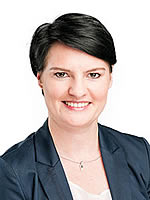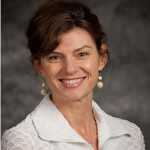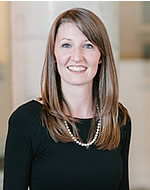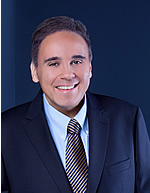The research methodology workshop will take place on the 23rd of May from 12:30-17:00. There are four breakout-sessions, covering various research methods.
| Time | Intermediate Level | Advanced Level |
| 12:30-14:30 | Mag. Stephanie Tischler (IMC University of Applied Sciences Krems): The Art of Questionnaire Design | Inga Carboni, PhD (College of William & Mary’s Raymond A. Mason School of Business): It's not what you know, it's who you know: Analyzing relational structures to understand and predict behavior. |
| 14:30-15:00 | Coffee Break | |
| 15:00-17:00 | Barbara Neuhofer, Phd (University of Bournemouth): Qualitative Research Methods | Dr Claus Ebster (Vienna University): Experimental marketing research in tourism |
Session 1:
The Art of Questionnaire Design, Mag. Stephanie Tischler (IMC University of Applied Sciences Krems, Austria):
This workshop investigates the art of questionnaire design and guides through the entire questionnaire design process. This will help workshop participants to translate research objectives into information requirements and finally into questions. Particularly, the workshop will help to determine the content of individual questions and to decide on question structure and wording. The workshop provides hints how to overcome the respondent’s inability and unwillingness to answer. Furthermore, gamification approaches which can increase survey experience will be presented. Finally, methods to eliminate potential problems will be discussed. After the workshop, students have obtained and worked through the questionnaire design checklist that will help them to develop questionnaires for upcoming research projects.
 Stephanie Tischler is a researcher and lecturer at the IMC University of Applied Sciences Krems (Austria). She teaches in the Bachelor study programmes “Tourism and Leisure Management” and “International Wine Business”. Her main fields of interest are sports and health tourism, wine tourism, tourism marketing and research methods. Stephanie graduated from the Vienna University of Economics and Business (Business Administration with specializations in Tourism and Leisure Management as well as Marketing Research and Marketing Science). Before joining the IMC, Stephanie worked for GfK Austria, the University of Applied Sciences Wr. Neustadt, Vienna International Hotels and Resorts and the Austrian National Tourist Office.
Stephanie Tischler is a researcher and lecturer at the IMC University of Applied Sciences Krems (Austria). She teaches in the Bachelor study programmes “Tourism and Leisure Management” and “International Wine Business”. Her main fields of interest are sports and health tourism, wine tourism, tourism marketing and research methods. Stephanie graduated from the Vienna University of Economics and Business (Business Administration with specializations in Tourism and Leisure Management as well as Marketing Research and Marketing Science). Before joining the IMC, Stephanie worked for GfK Austria, the University of Applied Sciences Wr. Neustadt, Vienna International Hotels and Resorts and the Austrian National Tourist Office.
Session 2:
It’s not what you know, it’s who you know: Analyzing relational structures to understand and predict behavior, Inga Carboni, PhD (College of William & Mary’s Raymond A. Mason School of Business, USA)
This workshop defines and examines a network approach to understanding tourism behaviour. Participants will learn how the network perspective differs from traditional approaches to examining phenomenon by looking at relationships between individuals rather than attributes of individuals. Why do networks form the way they do? What impact do particular network structures have on other outcomes? Participants will be encouraged to make links between their own research interests and the findings of network researchers. Next, the workshop will introduce a few of the central concepts of network analysis—including centrality, density, and diffusion. Finally, the workshop will outline the major steps involved in conducting a network study from contacting organizations to creating questionnaires to storing and analysing data. Upon completion of the workshop, participants will have a framework for evaluating the value of taking a network approach on their future research projects.
 Inga Carboni is an associate professor of organizational behavior at the College of William & Mary’s Raymond A. Mason School of Business (USA). Her research examines interpersonal and intergroup processes from a social network perspective. She is particularly interested in understanding the antecedents and outcomes for individuals who broker social relationships between groups in conflict. Her work has appeared in several journals and books, including Human Resource Management, Organizational Research Methods, European Journal of Work and Organizational Psychology, Psychological Assessment, Group Dynamics, and the Journal of Management Education. She received her PhD in organization studies from Boston College.
Inga Carboni is an associate professor of organizational behavior at the College of William & Mary’s Raymond A. Mason School of Business (USA). Her research examines interpersonal and intergroup processes from a social network perspective. She is particularly interested in understanding the antecedents and outcomes for individuals who broker social relationships between groups in conflict. Her work has appeared in several journals and books, including Human Resource Management, Organizational Research Methods, European Journal of Work and Organizational Psychology, Psychological Assessment, Group Dynamics, and the Journal of Management Education. She received her PhD in organization studies from Boston College.
Session 3:
Qualitative Research Methods, Barbara Neuhofer, Phd (University of Bournemouth, United Kingdom)
This workshop aims to explore qualitative research methods, research analysis and analysis tools. Workshop participants will first learn about the ‘toolbox’ of qualitative research and which methods can be used to gather meaningful findings in tourism research and social sciences at large. Second, workshop participants will learn about the principles and practices of qualitative in-depth analysis and which tools can be used in this process. The workshop will explore how to carry out both traditional manual and computer assisted qualitative analysis by demonstrating how to analyse data with the software NVivo. We will answer questions pertaining to the benefits and challenges of manual versus computer assisted analysis; showcase how to manage large amounts of data; and learn step-by-step how to perform a structured multiple-stage qualitative coding process in NVivo. The workshop will through a range of activities involve students and equip them with the skills for conducting high-quality data collection and analysis for future qualitative research.
 Barbara Neuhofer is a lecturer at the Faculty of Management, MSc Hospitality Programmes Leader and member of the BU eTourismLab. Barbara’s research interests focus on exploring how technologies transform and shape the way contemporary, consumer-driven experiences are co-created and how technologies create an intersection between our travel, work and life domains. Her doctoral studies coined the notion of ‘Technology Enhanced Tourist Experiences’, which Barbara has published in several international journals and books and presented at conferences and travel industry events. For her innovative research, Barbara has been honoured by a number of international recognitions and awards, among others, the ITT PhD Student of the Year 2013 Award, received at the House of Commons, the British Parliament. Barbara currently serves on the board of IFITT as Treasurer and Director of IFITT Next Generation.
Barbara Neuhofer is a lecturer at the Faculty of Management, MSc Hospitality Programmes Leader and member of the BU eTourismLab. Barbara’s research interests focus on exploring how technologies transform and shape the way contemporary, consumer-driven experiences are co-created and how technologies create an intersection between our travel, work and life domains. Her doctoral studies coined the notion of ‘Technology Enhanced Tourist Experiences’, which Barbara has published in several international journals and books and presented at conferences and travel industry events. For her innovative research, Barbara has been honoured by a number of international recognitions and awards, among others, the ITT PhD Student of the Year 2013 Award, received at the House of Commons, the British Parliament. Barbara currently serves on the board of IFITT as Treasurer and Director of IFITT Next Generation.
Session 4:
Experimental marketing research in tourism, Dr Claus Ebster (Vienna University, Austria)
The aim of this workshop is to introduce the participants to experimental research methods and demonstrate real-world applications in tourism research. Experiments are the method of choice in fields such as psychology and social psychology but are also frequently used in consumer research. In this workshop you will learn how to plan and implement experiments in the context of tourism research. The focus is on practical suggestions on how to conduct field and laboratory experiments and on case studies from my “research lab”. Experiments are often considered complicated and beyond the reach of student researchers. I happen to disagree. Join this workshop and let me convince you of the usefulness and practicability of this exciting research method.
 Claus Ebster is the founder and CEO of Market Mentor, a consulting company specializing in shopper marketing, point of sale and servicescape design, services marketing, as well as marketing research. He is also an Associate Professor in the Department of Marketing at the University of Vienna. He is also a faculty member at the Medical University of Vienna, Webster University, Lauder Business School, IMC Krems as well as other institutions of higher education. He has authored numerous scholarly articles on consumer behavior and marketing psychology and books on marketing research, store design and academic research. He studied Business Administration, Communication Sciences and Marketing Communication at Northwestern University in Illinois, Fordham University in New York, Vienna University of Economics and Business Administration, as well as the University of Vienna. After completing his PhD in 2000, he received postdoctoral qualifications for Business Administration (Habilitation) at the University of Vienna in 2007.
Claus Ebster is the founder and CEO of Market Mentor, a consulting company specializing in shopper marketing, point of sale and servicescape design, services marketing, as well as marketing research. He is also an Associate Professor in the Department of Marketing at the University of Vienna. He is also a faculty member at the Medical University of Vienna, Webster University, Lauder Business School, IMC Krems as well as other institutions of higher education. He has authored numerous scholarly articles on consumer behavior and marketing psychology and books on marketing research, store design and academic research. He studied Business Administration, Communication Sciences and Marketing Communication at Northwestern University in Illinois, Fordham University in New York, Vienna University of Economics and Business Administration, as well as the University of Vienna. After completing his PhD in 2000, he received postdoctoral qualifications for Business Administration (Habilitation) at the University of Vienna in 2007.
On both conference days, the official conference programme is followed by socialising and networking events.
